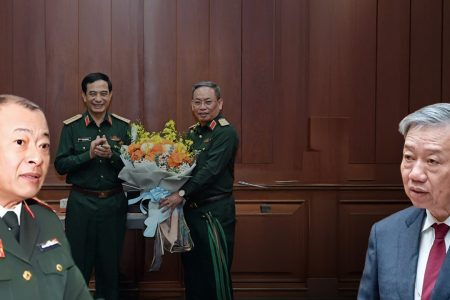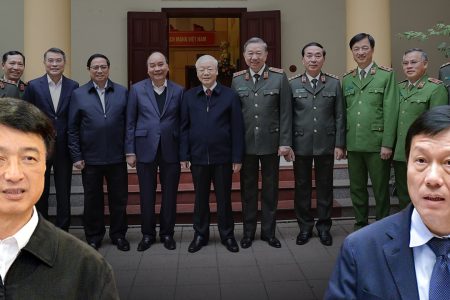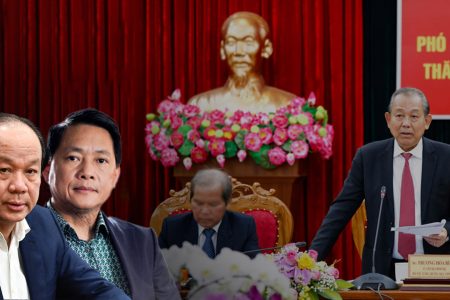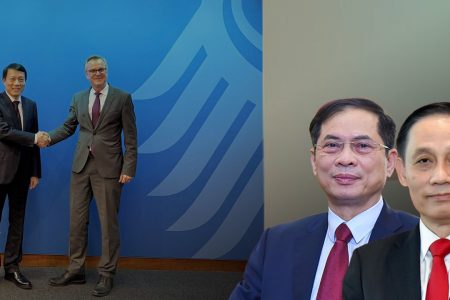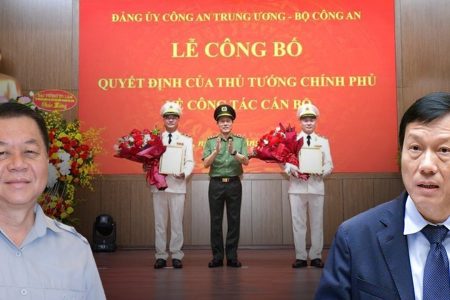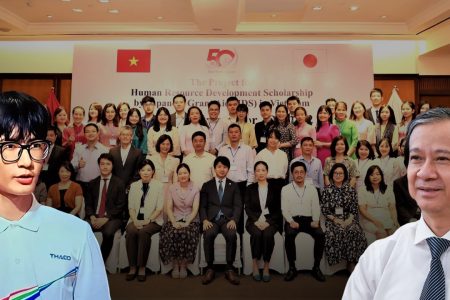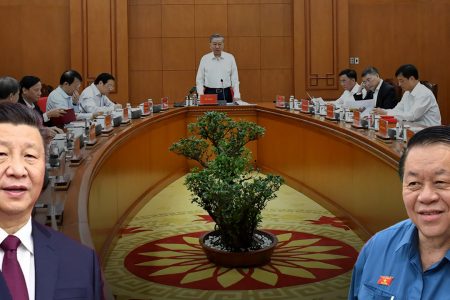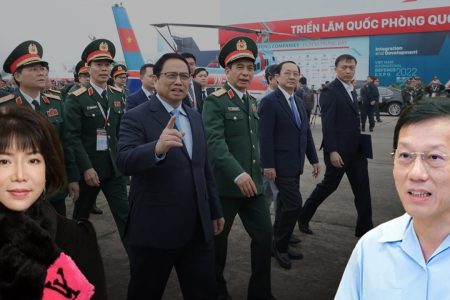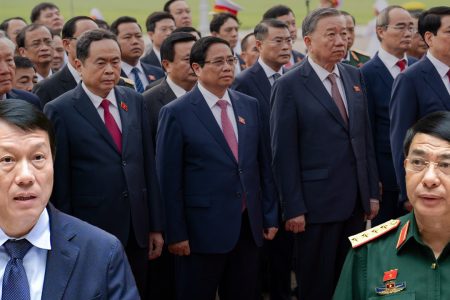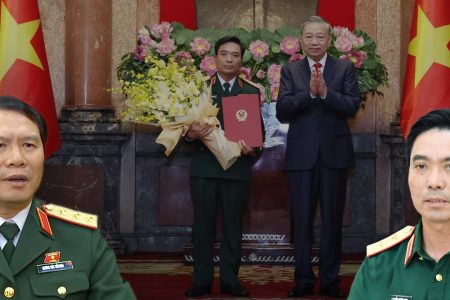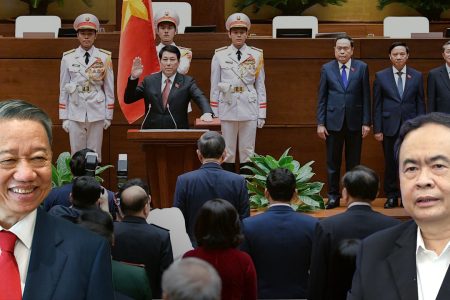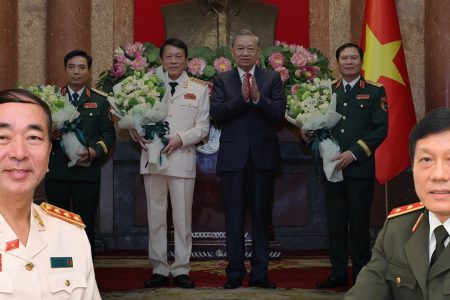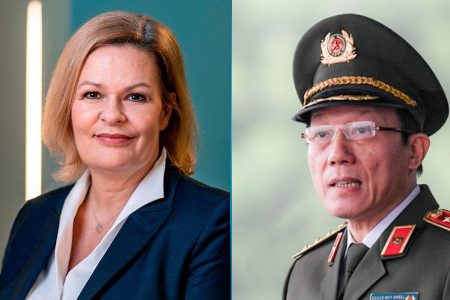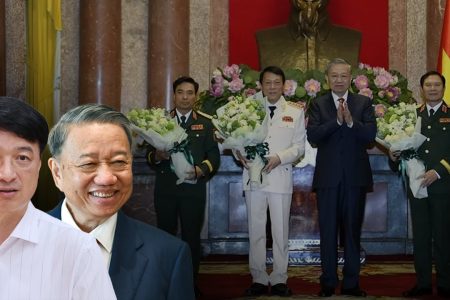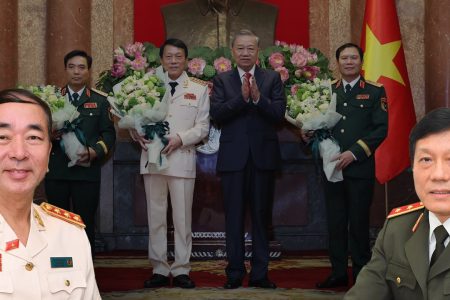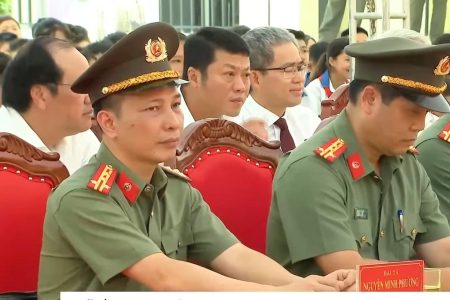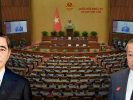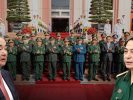
Vietnam’s Ministry of Public Security proposed to collect DNA and voice as a citizen identification database. Whether this is unconstitutional or not when personal secrets and family secrets have been recognized by the Constitution.
According to the Citizenship Identity Law (amended) project being appraised by the Ministry of Justice, the Ministry of Public Security proposed that information stored in the identity database for Vietnamese citizens would include facial photos, fingerprint, iris, DNA, voice, electronic identification account information, among dozens of other groups of information.
Commenting on this project, the Ministry of Defense suggested the drafting agency consider adding biometric information to the citizen’s identity.
The Ministry of Justice said that adding a number of biometric information groups to manage the entire population living in the territory of Vietnam is really necessary. However, the addition of information about DNA needs to carefully consider the feasibility of sampling with the confidentiality of this information because it is directly related to the moral rights of people.
Lawyer Dang Dinh Manh raised a number of legal issues related to the proposal of the Ministry of Public Security, with RFA on the morning of August 23:
“So far, the identity of citizens collected by the police as a citizen’s identity only includes facial photos and fingerprints. Recently, according to the draft amendment to the Law on Citizenship, which proposed to collect more information about biometric characteristics including iris, DNA, and voice, I was really surprised and couldn’t help but wonder and worry at least in two respects: Legal and personal privacy.
Legally, iris and DNA characteristics are all personal information, belonging to personal rights and bodily rights that are explicitly protected by the constitution. A law like the Citizens Identity Law cannot deny a constitutional right unless the citizen voluntarily consents to waive the right to be protected by the Constitution, but this is only a peculiar possibility.
At the same time, in reality, iris or voice are both secure ways for people to implement the protection of bank accounts, stock portfolios, social networks, unlock personal mobile phones, wifi, home gate, security camera, and many other types of security in people’s daily life. Therefore, the government’s collection of information about iris, DNA and voice, whether on behalf of any reason, causes people’s concern once the possibility of information leakage.”
The right to privacy is recognized in most human rights declarations or conventions around the world.
Article 12 of the 1948 Universal Declaration of Human Rights (UDHR) states: “No one shall be subjected to arbitrary interference with his privacy, family, home or correspondence, nor to an insult to his honor. or personal reputation; everyone has the right to the protection of the law against such interference and encroachment.”
Article 17 of the International Covenant on Civil and Political Rights (ICCPR) states: “No one shall be subjected to arbitrary or unlawful interference with his privacy, family, home, correspondence, or illegally infringed upon honor and reputation. Everyone has the right to the protection of the law against such interference or infringement.”
Article 21 of the 2013 Constitution of Vietnam also stipulates: “Everyone has the inviolable right to private life, personal secrets and family secrets; have the right to protect their honor and reputation.”
So, is the proposal to collect personal information raised by the Ministry of Public Security unconstitutional? Lawyer Nguyen Van Hau expressed his view to RFA:
“This is just a proposal, but many agencies are criticizing it because of the feasibility of sampling. Second, to determine the confidential content of this information, what should people do? Personal secrets, family secrets, and private life secrets have been declared inviolable by the 2013 Constitution of Vietnam. Now to want to include this information as identity data, is unconstitutional?
How do you suggest putting in the input methods to ensure security? Then how do you evaluate your skills to protect this information in the data? If it comes out, who is responsible? Handling like? Those who take information from citizens for identification data will be held responsible.
In my opinion, the proposal is correct, but the basis for protecting information must be considered. Some agencies people just wonder there. If it can be explained, the proposal will be approved.”
Some people believe that saving fingerprints and faces is more than enough to identify an individual, not necessarily saving biometric information as proposed by the Ministry of Public Security. From a citizen’s point of view, Mr. Lieu Thai opposes storing DNA. He said:
“Now suppose you have to do a DNA test to get the data into the system, then all the cards will be flipped. Family secrets are no more. For example, if a family has five children but suddenly one child is not with the father, the family will fall apart. Who dares to ensure that Vietnam’s family happiness index is not messed up when taking DNA data like that? In Vietnam, there are many such cases. Even the cadres and party members were the first to suffer. So in my opinion, taking DNA like that is sometimes beneficial and harmful.
Moreover, Vietnam’s information security is very poor, even selling information. If DNA is tested for every member of the family, the competition for land and property will be fierce. This is an opportunity to remove an heir from the family. It is very terrible. Choosing to include DNA in archival data is a wrong choice, causing social disorder.”
Many people do not believe in the security of their personal information once it is in the data warehouse, because information disclosure is not uncommon, not to mention hackers. The series of secret information about officials leaked before party congresses is an example.
According to information from the Department of Information Security (Ministry of Information and Communications), in the first 2 months of 2022, the total number of cyberattack incidents in Vietnam reached 2,643 with 2,022 malicious code attacks, 378 phishing attacks, 243 attack change interface. In the first 6 months of this year, the total number of cyberattacks on information systems in Vietnam was 6,641. On average, there are more than 265 cases per week.
With voice-controlled smartphones, revealing voices from the archive will lead to many consequences for the people. A series of cases of loss of money in bank accounts reported by the state media showed vulnerabilities in security. Even if the bank compensates, people’s trust in the security system is still decreasing.
Thoibao.de (Translated)



